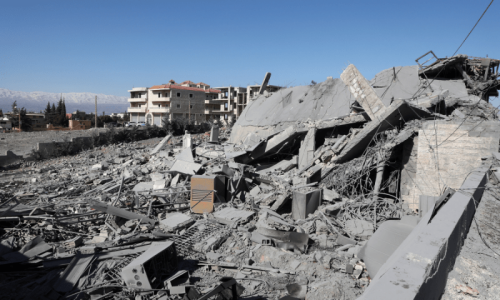YAFTAL SUFLA: Tearing off a piece of mouldy flatbread, Homayon gulped tea in a brief reprieve from the din of the machines he and a dozen other men were using to dig for gold on a mountainside in northeastern Afghanistan.
The 30-year-old found little work as a mechanic in nearby Faizabad city, so he banded with other unemployed men to try their luck carving out a living in the rocky mountains that dominate Badakhshan province.
“Five, six of us were jobless, we came here to see if we can find anything,” Homayon said, as the handful of men finished their break and returned to work at the small-scale mine they had set up.
Their efforts digging four tunnels have borne little fruit, even as they pour money into fuel, tools and labour. Other mines in the area had proved productive, Homayon said, so they kept digging — the promise of a windfall outweighing the risks of debt.
The losses can be significant, warned fellow miner Qadir Khan. “There are people who went into debt and were not able to find anything from these kinds of tunnels,” he said.
“They lost two to three hundred thousand (Afghanis, or roughly $2,800-$4,200), and there was nothing to do but try to find different work, make money, and come back to pay their debts.”
Sifting through rocks
Despite being 74, Khan says he has no choice but to keep working, as he hunches over a pile of rocks to break them into smaller pieces.
The Afghan Taliban’s takeover of the country in 2021 may have seen an end to two decades of war with the United States and its allies, but, according to a World Bank report, half the population is still living in poverty.
Labourer Sharif, 60, said he used to keep livestock but has been mining for the last year. Two of his sons had left for Iran to find work.
“We are still farming, but it is not the way it used to be,” he said, complaining of a lack of water — another shortage drought-hit Afghanistan has faced in recent years.
The rocks Sharif helps mine are broken up and hoisted down the steep mountainside, then pulverised into a flour-like substance.
On the banks of the Kokcha River, which snakes between snow-capped peaks, men use makeshift buckets to scoop water over piles of the powder.
It is then sifted as it runs down a sluice covered by material pulled from car interiors.
Published in Dawn, March 13th, 2024















































